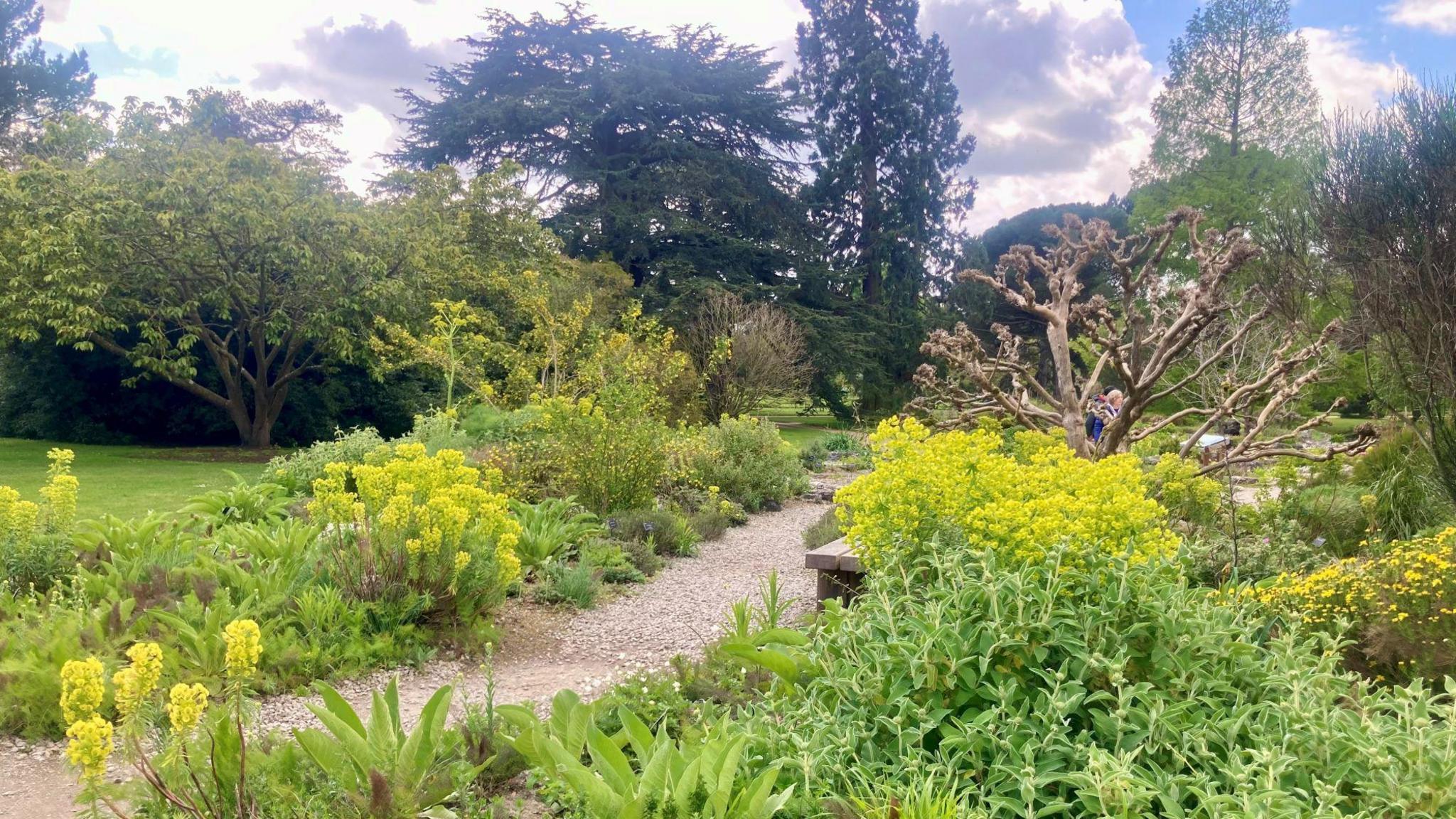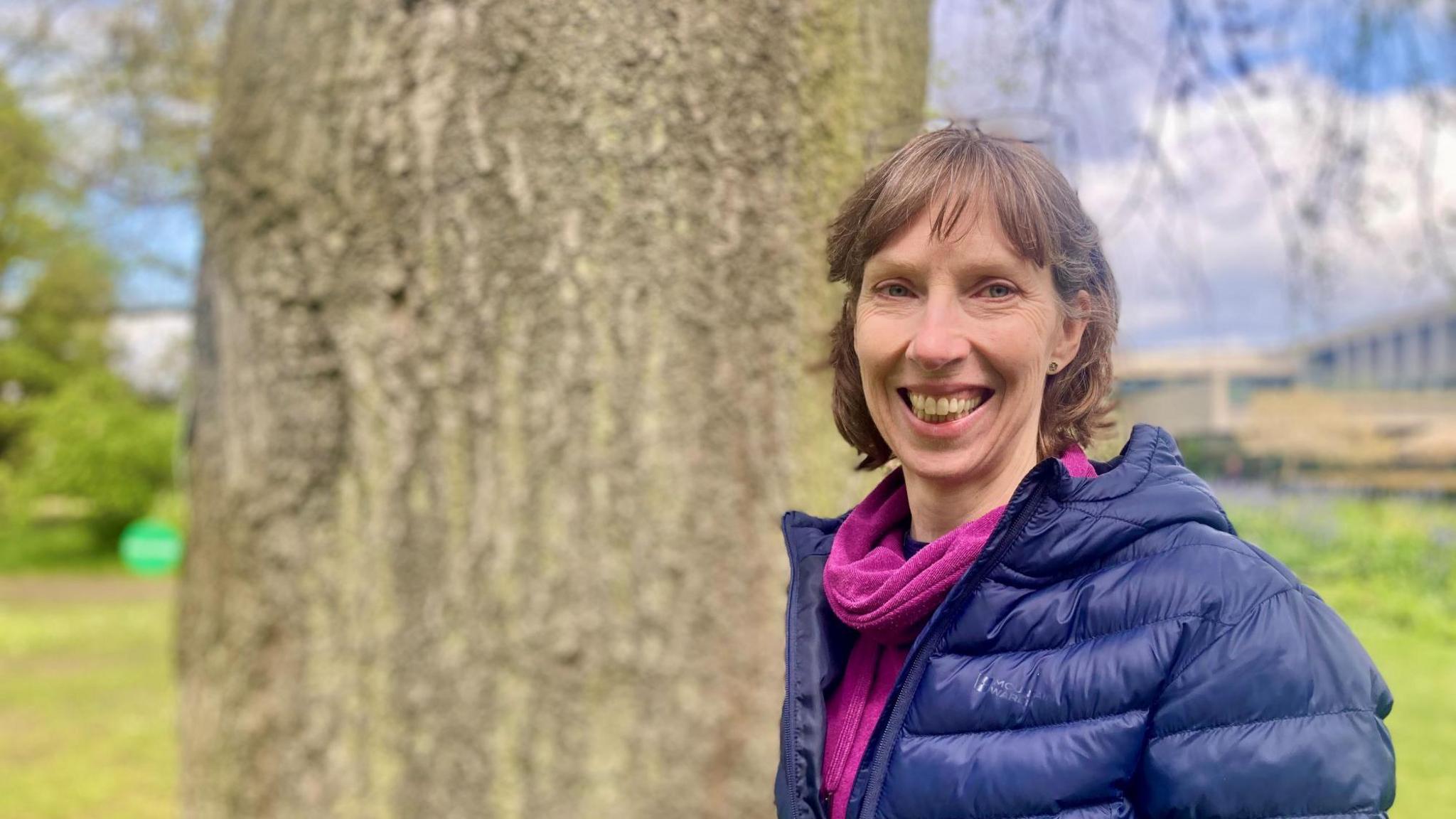Botanic garden monitors trees for climate change

A climate change monitoring project is being carried out at Cambridge University Botanic Gardens
- Published
A botanic garden has been tracking the effects of climate change on nature as part of an initiative.
The Phenology Project at Cambridge University Botanic Garden has been monitoring 90 marked trees and woody plants in the gardens since 2020.
Phenology - the study of seasonal changes in plants and animals from year-to-year - can help researchers understand how wildlife and plants respond to environmental change.
Rosemary Fricker, the project's coordinator, said: "We want to know if our trees are actually suffering because of climate change."
Species such as oaks and birch cherry have come into leaf and flowered earlier this year, she added.
"A lot of people now talk about spring coming earlier and seeing flowers out.
"Here in the botanic garden we've got a fantastic resource with all these trees, so we'd like to find a bit of evidence to see if climate change is affecting the seasonal changes of our plants.
"Phenology literally means the study of cycles in plants. For us it's seasonal cycles."

Rosemary Fricker is leading the project looking at the impact of climate change
Staff and volunteers have carried out weekly monitoring and collected data when the trees and shrubs come into leaf. They also record when the flowers open, fruit ripens and when leaves tint and fall at the end of the year.
"We need evidence that climate change is affecting our trees, but our questions are actually bigger than that," said Ms Fricker.
"We want to know if our trees are actually suffering because of climate change.
"We're also very interested in what happens in autumn, because if the leaves are staying on the trees longer, it means they're having a longer active season [and] they don't have as long a rest period as they would have if they had enough winter, and so therefore does that stress the trees?"
Ms Fricker added that with recent winters now more mild and wet, and spring arriving earlier, the project is focusing on responses from the species.
"As the climate changes, the trees that are naturally from equatorial regions might like it better, so they thrive in our garden," said Ms Fricker.
"It might have to change what we do in the botanic gardens in the future."

Edward Chang said it was important to see how plants are responding to rising temperatures
Edward Chang is studying for an ecology masters with the Department of Plant Sciences at Cambridge University.
He said he was particularly interested in hawthorn as it is a native species.
"I think its a good idea to see the variance between the plants themselves and see how the differences average out."
"We know that the world is changing, temperatures going up, there are also insects and plants doing different things.
"We need to get a better understand of this and at the same time, try to bring that [knowledge] back into the community."

Sally Petitt said the information gathered will help the garden plan its planting
Sally Petitt, the head of horticulture at the botanic garden, said the data would be valuable in helping her team manage their collections.
She said: "I was talking to a colleague this morning and asking should we be growing Chinese woodland species in a changing climate, will they actually adapt?"
"At a botanic garden we want to grow representatives from across the globe, but should we also be focusing on the plants we can grow well?"
Follow East of England news on Facebook, external, Instagram, external and X, external. Got a story? Email eastofenglandnews@bbc.co.uk, external or WhatsApp us on 0800 169 1830
